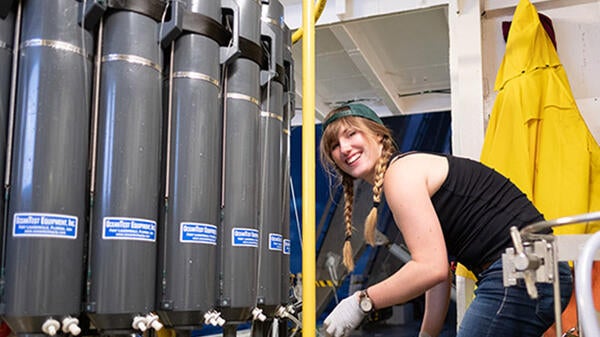Since its inception in the 1970s, the Canadian Associates of BIOS (CABIOS) program has provided more than 200 Canadian students and young scientists with financial assistance to pursue marine science and oceanographic research internships, as well as support for hundreds of students to complete academic coursework at BIOS. Founded by Earlston Doe, a former BIOS Life Trustee and Canadian oceanographer born in Bermuda, the CABIOS fund honors the memory of his youngest son Learmont “Leary” Doe.
Following the Light
January 29, 2019
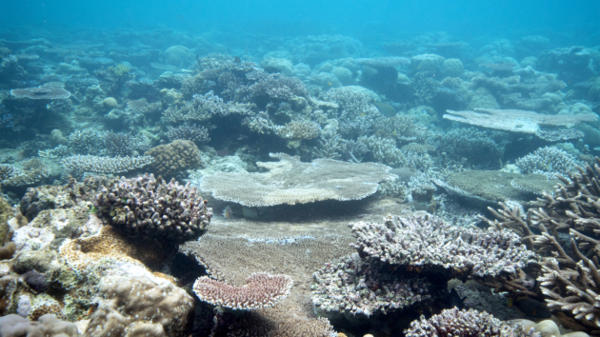
Similar to forests on land, the most important source of energy for tropical shallow water coral reefs is light. Photosynthetic algae, called zooxanthellae, live within the tissues of reef-building corals and provide them with oxygen and the products of photosynthesis, including glucose and amino acids. The corals, in turn, use these products as the energy source for building calcium carbonate skeletons and growing more living tissue. Other ecologically important reef organisms, such as macroalgae and turf algae, depend on light for growth and reproduction as well, making light the driving force behind the growth and overall productivity of coral reef ecosystems.
A Comprehensive Look at an Uncharted Reef
January 29, 2019
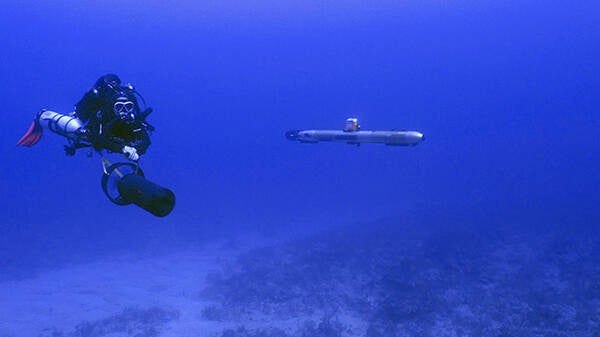
A team of technical divers and scientists, accompanied by an autonomous underwater vehicle (AUV) and molecular biology tools, will comprehensively map, photograph, and study part of Bermuda’s deepest reef system with funds from the Cawthorn Innovation Award, now in its third year of supporting the work of BIOS scientists.
Students Fly South for the Winter
February 26, 2019

As college education becomes as much about experiential learning outside the classroom as it is about lectures, labs, and study halls, many schools have begun to adopt what is known as the “4-1-4” academic calendar. In this system, students have a 4-month semester, then a 1-month “intersession” or “mini session,” followed by another 4-month semester. This offers students a variety of opportunities during this January term, including study abroad programs, internships, undergraduate research, and independent study.
Bringing the Laboratory to the Ocean
February 26, 2019
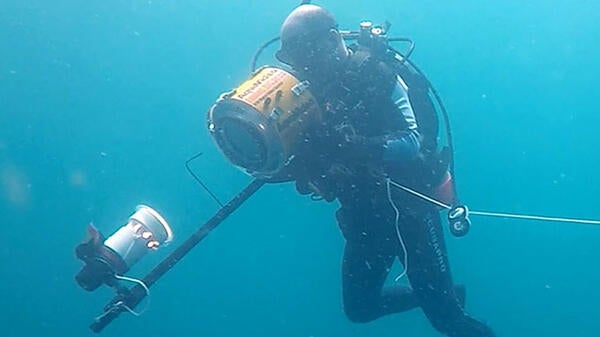
Comb jellies, or ctenophores, are some of the most abundant organisms in the open ocean, and their voracious hunting satisfies their big appetites. But away from their deeper-water home, in the care of humans, they are fickle and finicky. When captured in jars, their fragile tentacles and gelatinous bodies are often damaged. In laboratory settings, they are intolerant of shifts in salinity and temperature, and sometimes refuse to feed.
Oceanographer, Author, Sailor, and BIOS Trustee
February 26, 2019
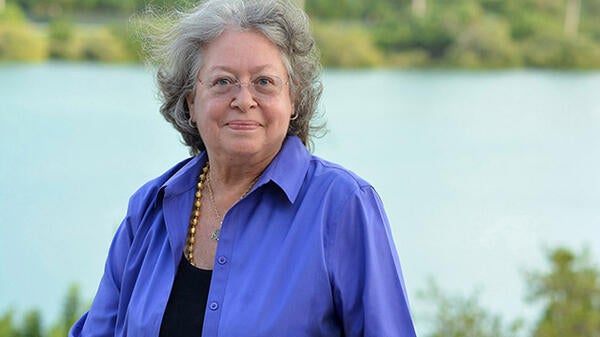
In the late 1970s, Linda Glover visited BIOS, then the Bermuda Biological Station for Research, for the first time. “I had visited marine research labs in many countries, but I was particularly charmed by the beauty of BIOS and Bermuda,” Glover said. Decades later, she received “an entirely unexpected call from the chairman of the BIOS board, Michael Naess, asking if I would like to become a trustee.” She had worked with Naess and another trustee, John Knauss, in the 1980s when they served on the U.S. Presidential Ocean Policy Commission. “While very flattered by the offer, I was still working at the time for the United States government and accepting the board position would have created a conflict of interest,” she said.
Collaboration Benefits Island’s Students
February 26, 2019
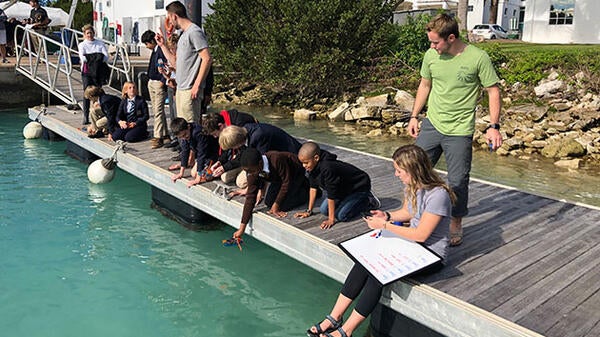
A novel partnership between BIOS’s Ocean Academy and the University of Delaware (UDel) this winter gave dozens of local teachers and students the opportunity to learn about marine robotics and how they are used to explore the oceans.
Calling All BIOS Volunteers
March 29, 2019
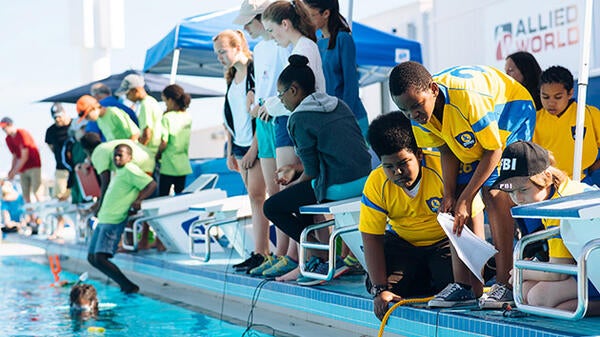
Like to snorkel? Interested in supporting emerging marine engineers? Volunteers from BIOS and the Bermuda community are needed to assist on Saturday, April 27 from 8:00a.m. to 3:00p.m., as more than 30 teams of school students test their mission-tasked Remotely Operated Vehicles (ROVs) during the annual island-wide robotics challenge.
Spreading the Word About Tudor Hill
March 29, 2019
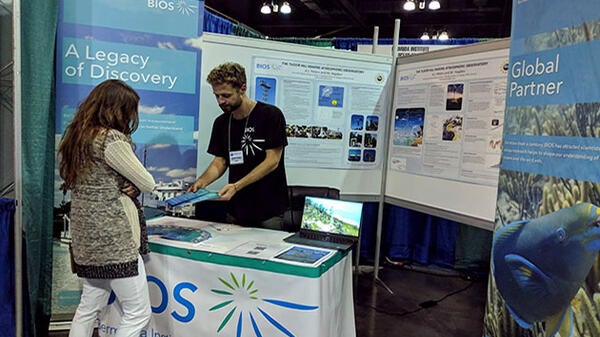
The 2019 Aquatic Sciences Meeting of the Association for the Sciences of Limnology and Oceanography (ASLO) took place February 24 to March 1 in San Juan, Puerto Rico. This biennial scientific conference brings together scientists, students, and policy-makers from around the world to present research on a variety of themes relating to aquatic sciences, including remote sensing, aquatic biodiversity, climate change, carbon cycling, and transitioning scientific research into meaningful applications.
An Environmental Engineering Challenge, with a Twist
March 29, 2019

How could a group of 15 students from diverse cultural and socioeconomic backgrounds—and separated by hundreds of miles— work together to address a real-world ecological issue? That’s what a team of educators is set to find out with new funding from the National Geographic Society.
